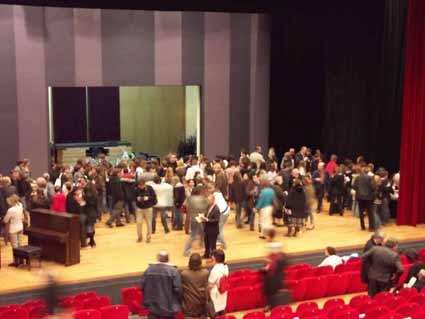
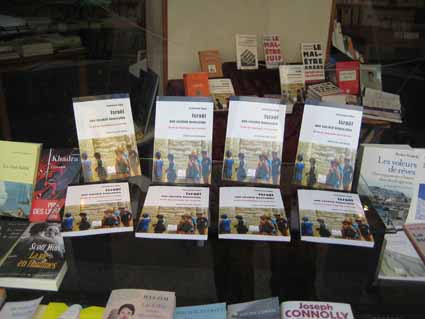

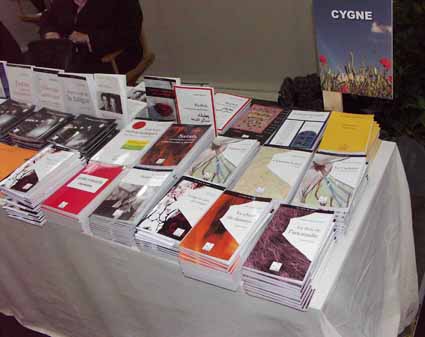

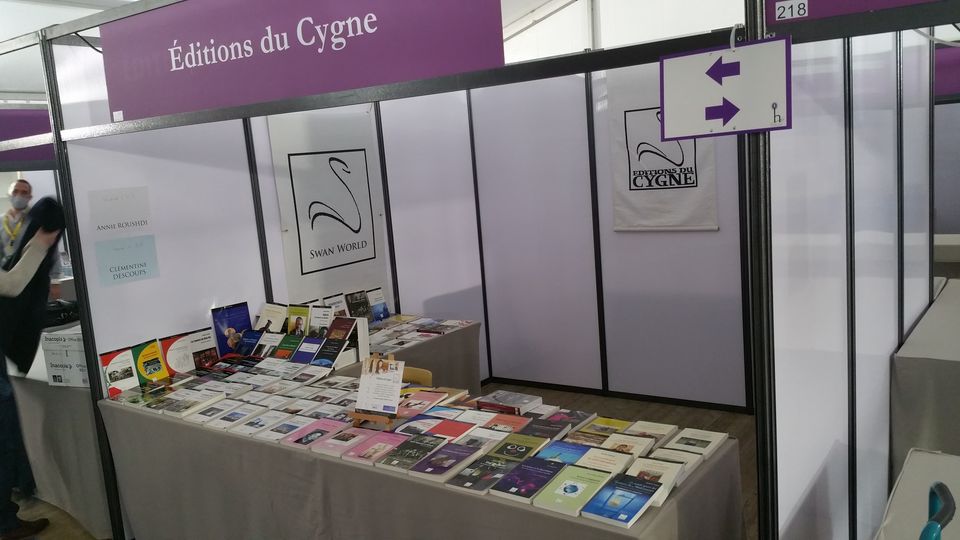
 |
 |
 |
 |
 |
 |
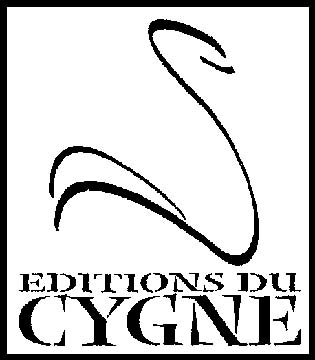 |
Les Editions du Cygne en Namibie : distribution de livres à l'école Peri Naua d'Otjiwarango |
|
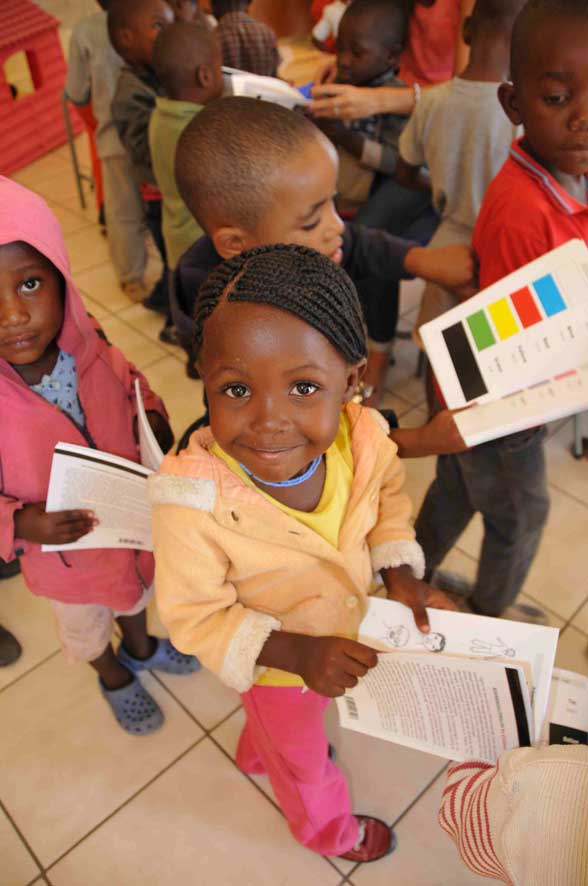 |
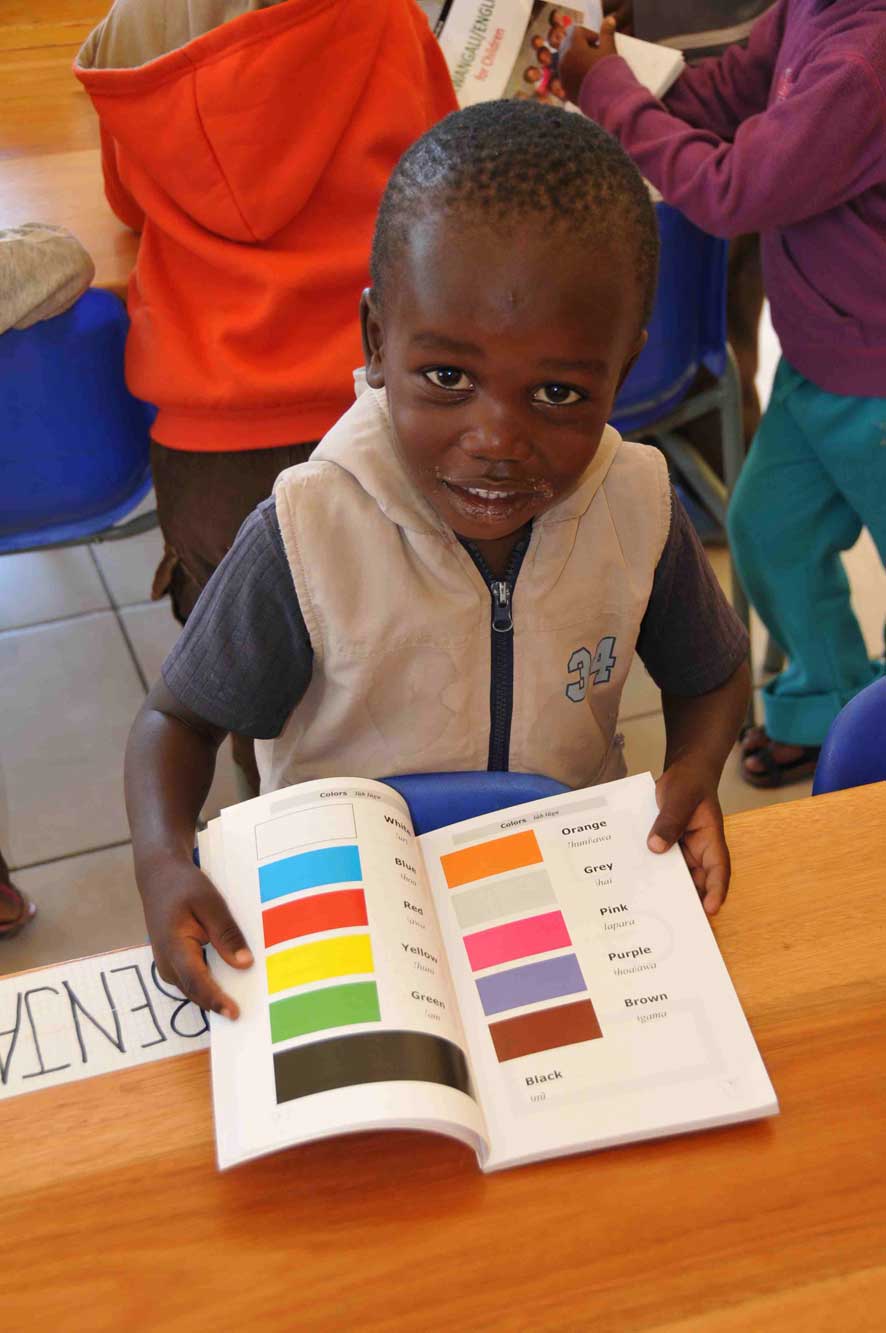 |
|
L'anglais est la langue officielle de la Namibie depuis son indépendance. Elle a été choisie pour son caractère neutre alors qu'elle compte pourtant bien moins de locuteurs que l'allemand, l'afrikaans (langues issues de la colonisation) et bien d'autres langues locales d'Afrique australe dont la langue khoekhoegowab et la langue rukwangali. La langue khoekhoe est la plus répandues des langues australes dites "à clics". Elle est parlée en Namibie, au Botswana et en Afrique du Sud par troies ethnies principales : Nama, Damara et Hai//om. Beaucoup d'enfants, surtout parmi les plus défavorisés, ne connaissent rien de l'anglais. Cela s'avère être un handicap insurmontable dès leur scolarisation à l'école primaire. Il nous a semblé indispensable que ces enfants puissent se familiariser dès leur plus jeune âge avec la langue anglaise tout en gardant un lien écrit avec leur langue d'origine, celle qu'ils connaissent et que parlent leurs parents. "Khoekhoegowab/English for children" et "Rukwangali/English for children" proposent près de 500 mots anglais courants illustrés avec sa traduction en langue khoekhoegowab et rukwangali. Pour les enfants ne connaissant que leur "langue locale", ces ouvrages constituent une première rencontre indispensable avec la langue anglaise qui sera la langue de leur future vie scolaire et professionnelle. Ces ouvrages peuvent aussi servir aux touristes qui découvrent la Namibie et l'Afrique australe et qui souhaiteraient faire plaisir à leurs interlocuteurs en échangeant avec eux quelques mots en langue khoekhoegowab ou rukwangali. |
English has been Namibia's official language since the country became independent. The language was chosen for its neutral character although there are a lot less English speakers then there are who speak German, Afrikaans (languages stemming from colonization) and many other local austral African languages such as Khoekhoegowab or Rukwangali. The Khoekhoe language or Khoekhoegowab is the most widespread of those languages of southern Africa which contain many «click» sounds. It belongs to the Khoe language family, and is spoken in Namibia, Botswana, and South Africa by three ethnic groups : the Nama, Damara, and Hai//om. Many children, especially among the most disadvantaged, do not know any English. This turns out to be an insurmountable handicap as soon as they start going to primary school. |
Ces ouvrages sont le fruit d'une rencontre entre l'association française Peri Naua (qui construit des écoles maternelles en Namibie en prenant en charge la scolarité d'enfants du township mais aussi en leur fournissant un repas par jour), une bénévole française en Namibie (Hiu BONNIN), une illustratrice-éducatrice française spécialisée dans la petite enfance (Annie ROUSHDI), un professeur namibien (Abrams GOMHETAMA/AWA-EISEB)... et les Editions du Cygne ! |
These books are the result of a collaboration between the French assiociation Peri Naua (which is supporting sustainable micro development projects initiated by Namibians ; is working in the fields of education, health and culture for the children stemmed from disadvantaged families), a French volunteer in Namibia (Hiu BONNIN), a French teacher for young children with special needs (Annie ROUSHDI) and a namibian teacher (Abrams GOMHETAMA/AWA-EISEB)... and Editions du Cygne ! (French publishing house) |
|
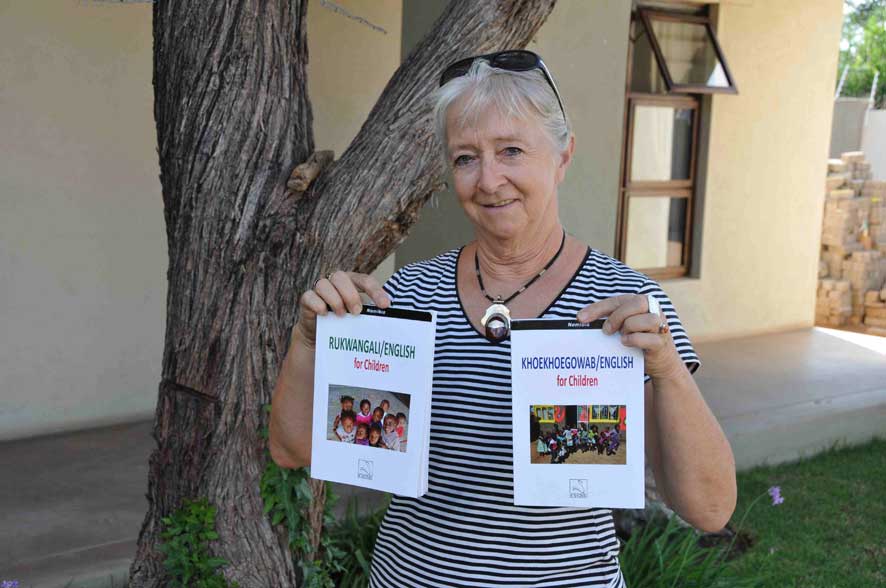 |
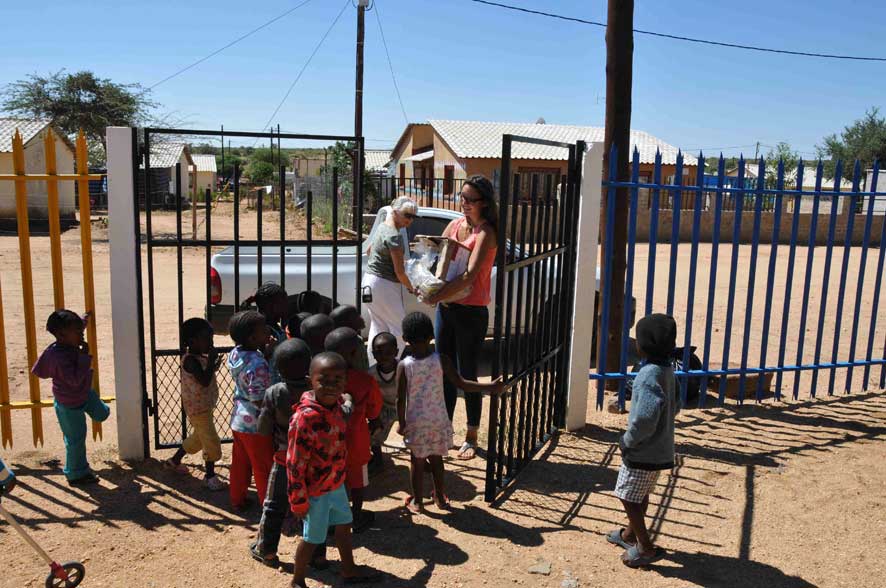 |
|
Les Editions du Cygne ont offert un livre à chaque élève de l'école Peri Naua d'Otjiwarango. Chaque enfant d'origine Damara a reçu un exemplaire de "Khoekhoegowab/English for children" et chaque enfant d'origine Kavango a reçu un exemplaire de "Rukwangali/English for children". |
Editions du Cygne offered a book to every child from Peri Naua school of Otjiwarango. Damara children received a copy of "Khoekhoegowab/English for children". Kavango children received a copy of "Rukwangali/English for children". |
|
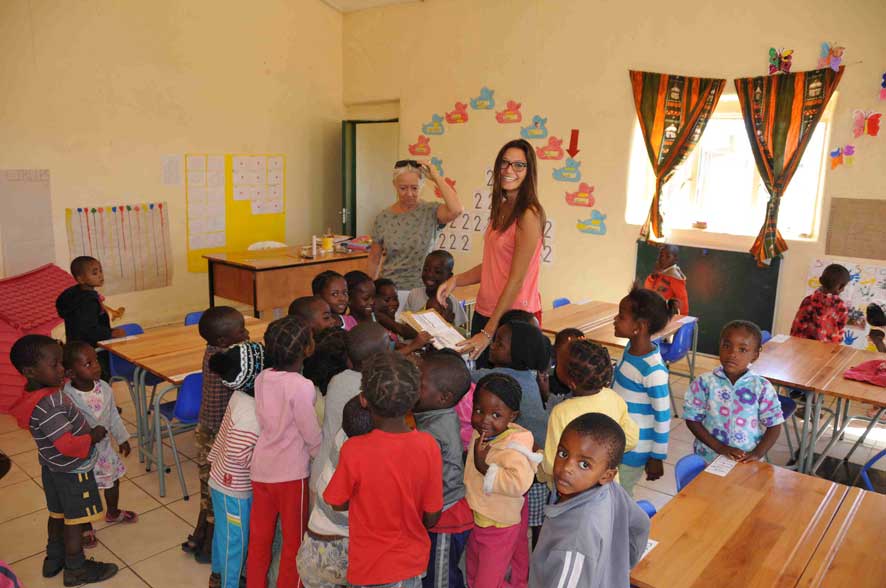 |
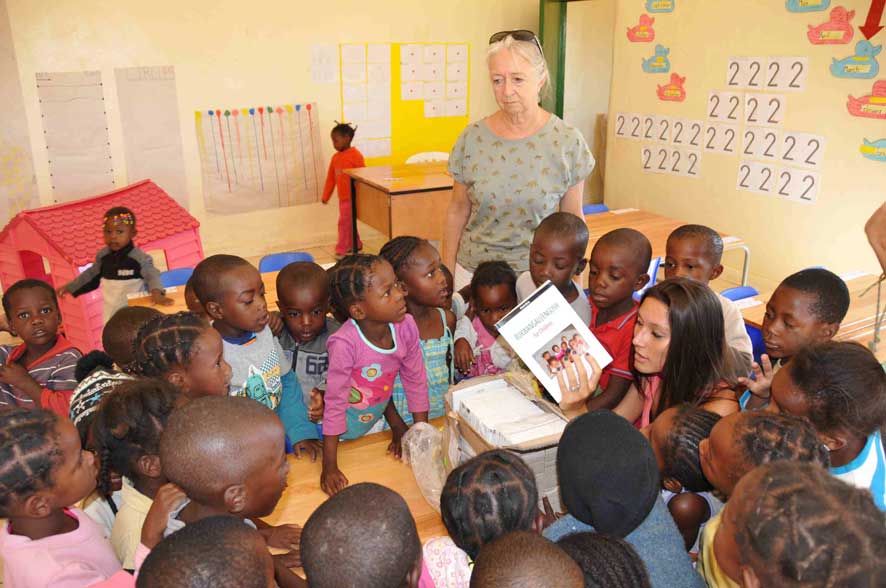 |
|
De gauche à droite : 1) Monique ESCURAT avec deux enseignantes namibiennes ; 2) 3) et 4) Hiu ouvre le colis avec les enfants. |
From left to right : 1) Monique ESCURAT with two Peri Naua teachers ; 2) 3) and 4) Hiu opens the parcel with the children. |
|
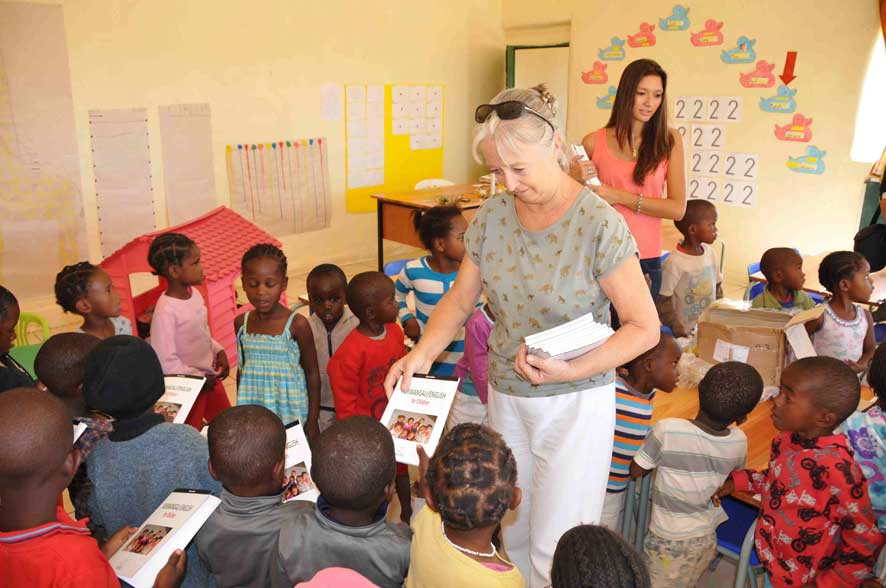 |
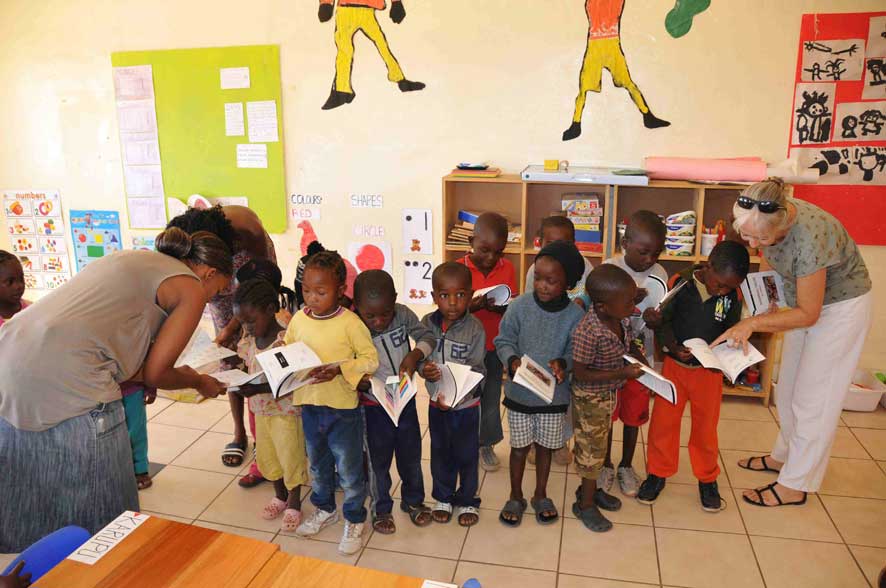 |
|
Les enfants ont maintenant leur livre. Comment vont-ils réagir ? Pour la plupart, ils n'ont jamais eu un livre à eux ! |
The children have now their book. How will they react ? For the most part of them, it is the first time they possess their own book ! |
|
Réaction étonnante ! La plupart des enfants se sont assis sagement et ont commencé à feuilleter le livre. |  |
Amazing reaction from the children. Most of them sitted down and wisely looked at the book. |
|
||
|
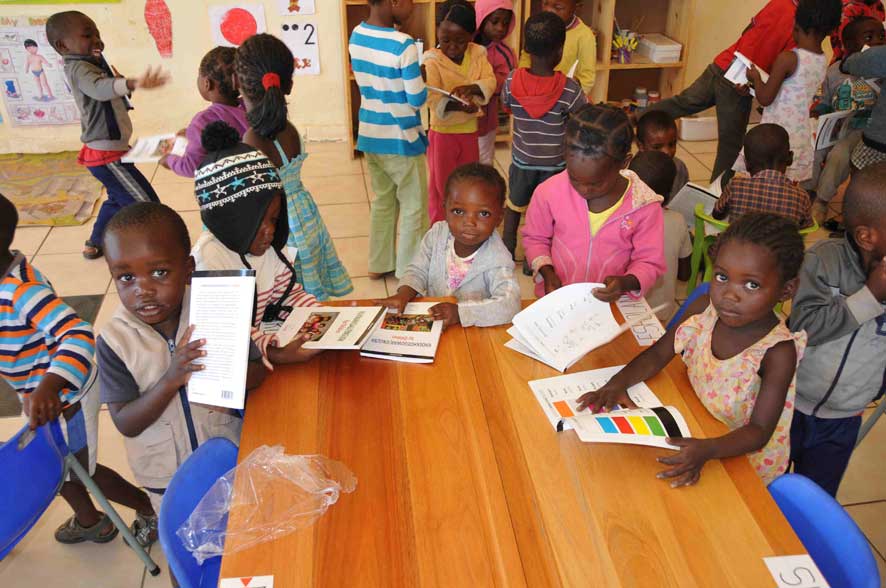 |
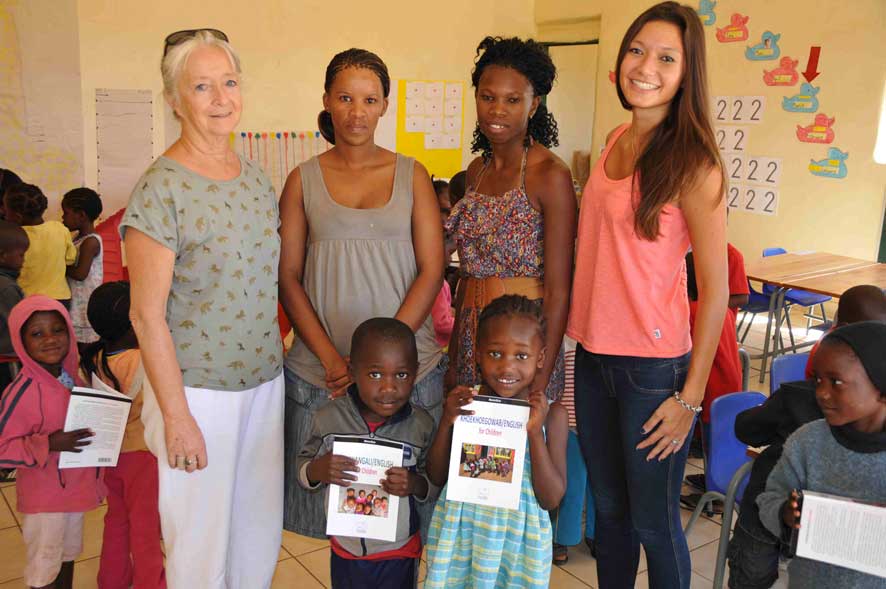 |
|
Voir des enfants namibiens découvrir leur premier livre, l'une des plus belles histoires des Editions du Cygne. |
To see namibian children discovering their first book. One of the most beautiful stories of the Editions du Cygne. |